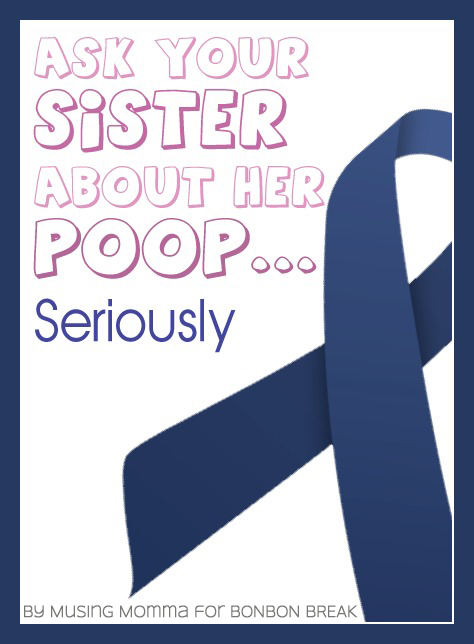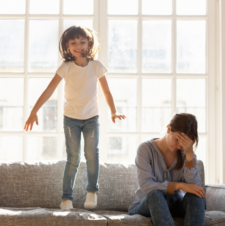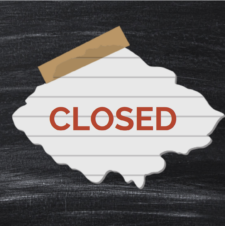Ask Your Sister How She’s Poopin’ (Seriously): Colon Cancer Awareness

My sister is in India right now, spending three weeks visiting remote spiritual landmarks and practicing yoga. She’s crossing a biggie off her bucket list, in part because the opportunity presented itself, but also because – truth be told – she is not sure when or even if she’ll have the chance again.
Jenn was diagnosed with Stage 4 colon cancer nine months ago. It still makes my chest tighten and my stomach churn to write that. One night she was calling to say a colonoscopy had revealed a large tumor in her colon. The next morning she called with the results of her CT scan – the cancer had metastasized and there were already tumors spread throughout her liver and lungs. She was 36 years old at the time of her diagnosis.
If you have ever had a loved one diagnosed with cancer, then you know how that one word will turn your whole world upside down.
In the world of cancer, breast cancer takes center stage. We’ve got pink ribbons out the wazoo. And that’s a good thing – one in eight women will be diagnosed with breast cancer at some point in their lives. Thanks to all of the education and awareness-raising, most women know the signs of breast cancer: a lump, a change in the appearance or feel of the breast, unusual discharge from the nipple. We know the importance of self breast exams and mammograms. By the time we hit our 30s, most women know someone who has had breast cancer. If one of us heard our sister had a lump, we’d know just what to say: Get that checked out! Now!
Did you know that, not including skin cancers, colorectal cancer is the third most common cancer in white women, and the SECOND most common in black and Asian women? And that colon cancer is the second leading cause of cancer-related deaths in the United States?
Do you know the signs of colorectal cancer? Does your sister know the signs?
Today, if you have a sister, I want you to pick up the phone and call her up and ask her how she is pooping these days. If you don’t have a sister, ask your best friend.
Dr. Oz was right when he sat on Oprah a few years back and said poop is an indicator of overall health. (Does anyone else remember that episode?) Your poo is also a red flag for colorectal cancer. So ask your sister: How is she poopin’? Has she been constipated? Feels like she needs to drop a deuce but she just can’t? Are her #2s long and skinny, like a #2 pencil? Has the consistency changed? Is there blood in her poo? These are possible signs of colorectal cancer.
You might also ask her about other signs: Fatigue. Backaches. Abdominal cramps. Diarrhea lasting more than a few days. Frequent gas and bloating. Unexplained weight loss.
If she has these signs, insist she schedule an appointment with her family doc. Go with her. Tell the doctor that you want a referral for a colonoscopy, even if your sister is young. Colorectal cancers are on the rise in people under 50, but are often slow to be diagnosed in young people because they just aren’t expected – and later diagnosis means poorer prognosis. For several months my sister’s back pain and constipation were chalked up to muscle strain and possible irritable bowel syndrome. Her doctor would not have sent her for a colonoscopy if she had not had blood in her stool, and at that point, the cancer had already spread. She is only in her 30’s.
I share this not to scare anyone, but to empower us. We need to know our bodies. We need to recognize the signs of breast cancer and skin cancer, but we need to know the signs of other cancers too. We need to know when to see our doctors and when to push for further testing.
We talk to our sisters about everything – PMS, sex, fights with our partners. Surely we can talk to our sisters about poo.
March is Colon Cancer Awareness Month. This month, please, ask your sister how she’s poopin’. (And your brother, too.)
For more information about colon cancer, visit the Colon Cancer Alliance website.




